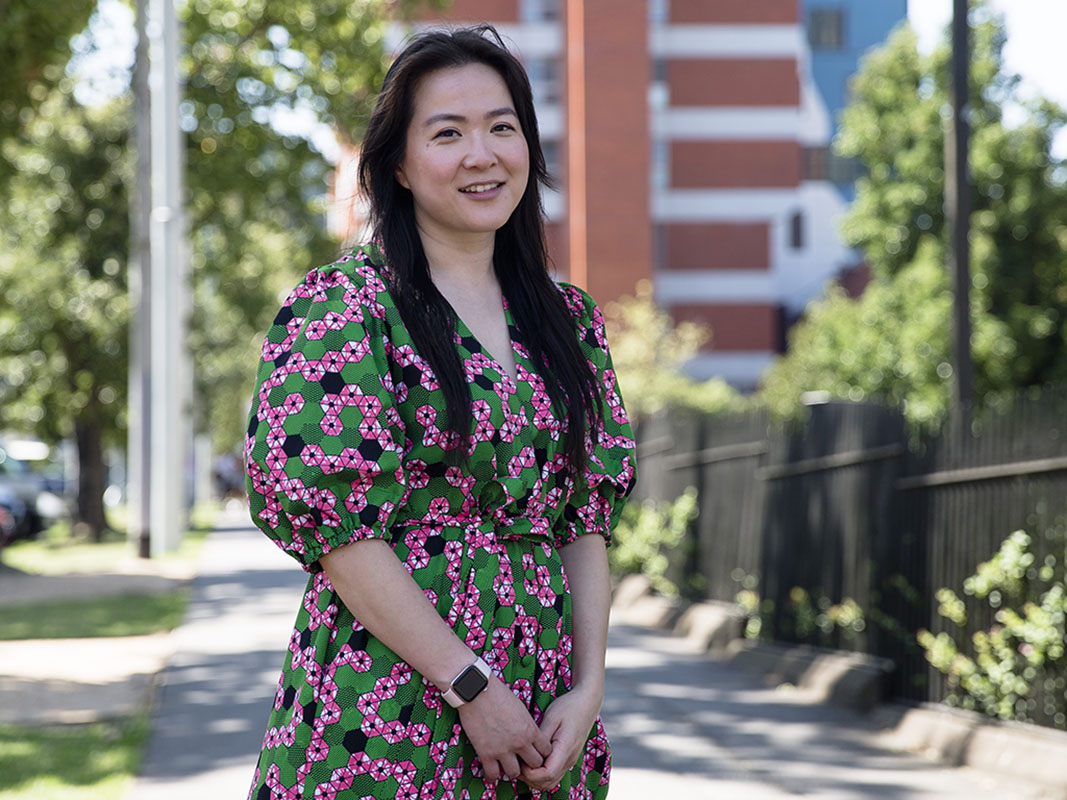Stories
STEM superstar
Dr Flora Hui is a rising star in glaucoma research – and she’s using her platform to make science accessible to everyone.
Growing up in the 80s and 90s, CERA Research Fellow Dr Flora Hui didn’t see a lot of people who looked like her in science, technology, engineering and maths (STEM) careers.
“The closest I got was seeing female Asian doctors, but nothing in science or research,” she says.
“So it was never a career that I thought about when I was younger.
“That’s what now motivates me to become more visible in the public sphere – so people can see that having a career in STEM is open to everyone.”
In 2022, Dr Hui got the chance to fulfil this role when she was one of 60 participants selected for the national Superstars of STEM program run by Science and Technology Australia.
The program aims to raise the media profile of women and non-binary people in STEM.
“I feel very honoured to be selected as the program is highly competitive and people apply from all around Australia,” says Dr Hui.
In the two-year program, Dr Hui will build her skills in public speaking, working with the media and communicating with influence.
She will also have opportunities to share her story in schools, workplaces and the media.
“I’m really looking forward to putting these skills to use – talking to kids and getting them excited about a potential STEM career,” she says.
In 2022, Dr Hui was also selected for the ABC’s TOP 5 Science media residency program, which equips early-career researchers with the skills to communicate in the mainstream media.
“The program was fantastic. I not only got to see how the ABC works and write articles for them, but I also met fantastic people who have taught me a lot about presenting on radio and TV,” she says.
“It’s already leading to more media opportunities.”
The program has given her a platform to share her research with a non-academic audience and help make science communication more accessible to the public.
“I think there are lots of benefits to hearing from researchers like myself, to learn about the importance of the work we do in Australia and why research is so critical,” she says.

Advancing glaucoma research
Alongside her social advocacy work, Dr Hui has continued to progress her research to prevent blindness from glaucoma.
Following a six-month clinical trial in Australia that showed the potential of nicotinamide (a form of vitamin B3) to slow down vision loss in glaucoma, Dr Hui is now conducting an international two-year trial to determine if these changes can be sustained long term.
“This study is going to be part of the world’s biggest clinical trial in glaucoma to test if nicotinamide can protect the nerve cells in the optic nerve and slow down vision loss,” says Dr Hui.
“The great thing about nicotinamide is that it’s already commercially available.
“If we do find that it’s useful, it can be incorporated into clinical care very quickly.”
Dr Hui has partnered with research teams in Singapore, Sweden and the UK to form an international collaboration that will allow four big clinical trials to run concurrently around the world.
If the trial is successful, Dr Hui says that nicotinamide could fill an important gap in the way we currently treat glaucoma.
“We haven’t had any new therapies that don’t work on eye pressure,” she says.
“The problem is, when these therapies aren’t working in a patient, we run out of options for them as all our current treatments target the same thing.
“The idea of these new therapies, including nicotinamide, is to find what else we can do to prevent people from losing their sight. It’s really exciting to be a part of.”
This story was originally published in See the future: Annual Review 2022.
